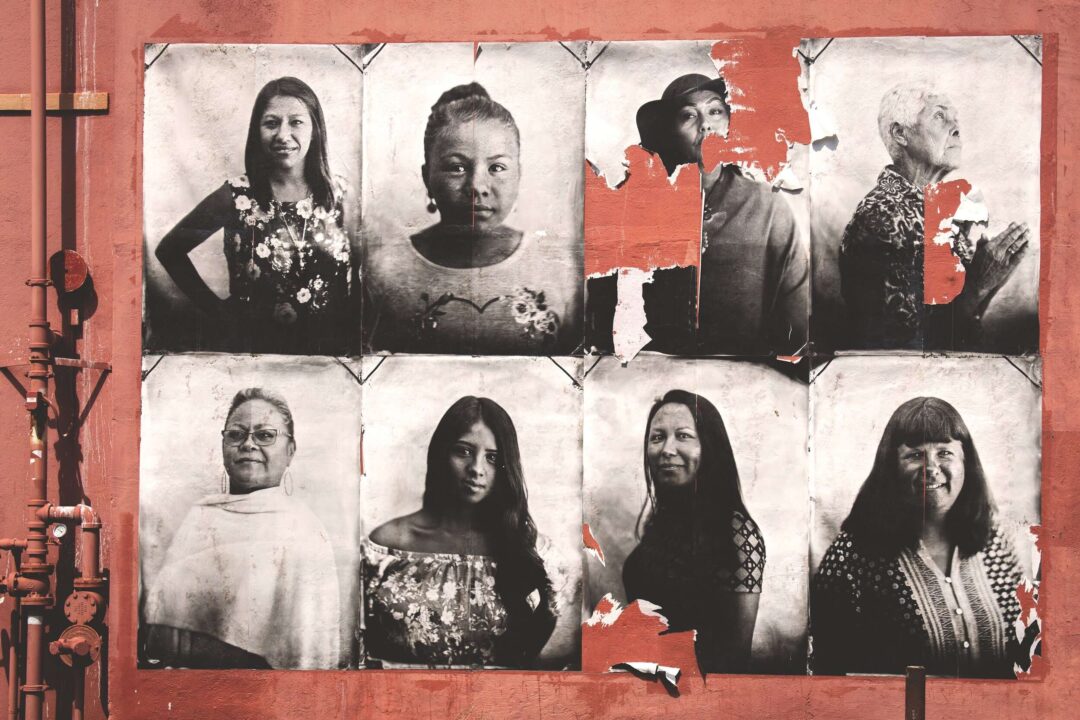Christians are having more frequent conversations about race and racism. But when we talk about race, it is usually about black and white. Hispanic brothers and sisters often feel their struggle is overlooked. For instance, we seldom see or read news reports about a Hispanic man being gunned down or terrorized by a police officer. Yet it happens. I lived in a Hispanic immigrant community for almost twenty years where it was common to see Hispanic men and women pinned down by a police officer or a family separated by la migra (immigration police/ICE agents).
An effect of this limited conversation is that many people are unaware of the Hispanic experience or of the diversity within the Latin-American community. In this article I will introduce the terms Hispanic, Latino, and Afro-Latino to describe the diversity of Hispanic and Latino minorities in America.
Hispanic
The US Census Bureau used the term Hispanic for the first time in 1980 after decades of lobbying by Hispanic activists to be counted in the national census. The question read, “Is this person of Spanish/Hispanic origin or descent?” As a result of this question, 14.6 million Hispanics were counted in the 1980 census (1). Before 1980, census reports grouped Hispanic immigrants with European immigrants as “white.” This pan-ethnic term created a new identity category for underrepresented Hispanic minorities in America.
In English, the term Hispanic (hispanicus in Latin), refers to Spain and the Spanish language. Hispanics are people who speak Spanish and/or who trace their roots to a Spanish-speaking country. Although the term Hispanic seeks to unify several distinct ethnicities, cultures, and nationalities, it has been widely criticized for highlighting Spain, which colonized much of Latin America. Therefore, the term Latino was offered as an alternative.
Latino
Latino is short for the Spanish word Latino Americano which means “from Latin America.” Latin America includes twenty countries and much of the Caribbean. A person can be Latino but not Hispanic (e.g., a Brazilian is from Latin America but speaks Portuguese, and therefore is not Hispanic). The 2000 Census added the term Latino. The question read, “Is this person Spanish/Hispanic/Latino?” As a result of this question, 35.3 million Hispanics and Latinos were counted (2).
Nationality, not race, is what determines whether a person is of Hispanic or Latino origin. Although Hispanics and Latinos are considered “white,” they may report as any race. In the 2010 Census, 97% of those who checked “some other race” were Hispanics/Latinos (3). Many who do not want to identify as either Hispanic or Latino choose to identify with their nationality (e.g., Columbian, Puerto Rican, Salvadorian, Brazilian, Spaniard, Mexican, etc.).
Afro-Latino
The term Afro-Latino is less commonly known but is gaining traction (4). It is estimated that 95% of African chattel were scattered about Latin America and the Caribbean during the transatlantic slave trade (also known as the Afro-Latina diaspora) (5). An Afro-Latino is a black Latin American whose afrodescendientes (afro-descendants) are from Latin America or the Caribbean. The term Afro-Latino also groups several distinct ethnicities, cultures, and nationalities into one. Most but not all Afro-Latinos speak Spanish (e.g., an Afro-Brazilian will likely speak Portuguese).
There is a diversity of terms because there is a diversity of people that make up the Hispanic and Latino communities. Though a census form may consider us white, that does not match the experience of Hispanics and Latinos in America. Conversations on racial justice often exclude the suffering of Hispanics and Latinos, perhaps because of this confusion.
As Christians seeking racial reconciliation, we limit our understanding of who God is and what he is doing when we limit the conversation of racial justice to the black and white communities. We get a fuller picture of who God is when we listen and lament with a fellow brother and sister who is from a completely different ethnicity, culture, and nationality and who speaks a different language. Others unlike ourselves may experience the Triune God of grace in the midst of their unique situations and struggles differently than we do and can help us see his glory all the more in a new light.
We see the richness and beauty of God’s community when we do not assume that Hispanics and Latinos are “white.” Properly recognizing Hispanics and Latinos as not being white will help us to understand that they are also subject to racism, and it will keep us from “other-ing” a suffering people that have a long history of being overlooked and underrepresented in America.
- (1) Bureau of the Census, 1980 Census of Population, Vol. 1: Characteristics of the Population, Chapt. B: General Population Characteristics (Washington, D.C.: U.S. Department of Commerce, 1983), 21, available at https://www2.census.gov/prod2/decennial/documents/1980/1980censusofpopu8011u_bw.pdf.
- (2) U.S. Census Bureau, The Hispanic Population: 2000 (Washington, D.C.: U.S. Department of Commerce, 2001), 1, available at https://www.census.gov/history/pdf/mso01-hp-092020.pdf.
- (3) D’Vera Cohn, “Seeking Better Data on Hispanics, Census Bureau May Change How It Asks About Race,” Pew Research Center, April 20, 2017, available at https://www.pewresearch.org/fact-tank/2017/04/20/seeking-better-data-on-hispanics-census-bureau-may-change-how-it-asks-about-race/. Note, the 2020 Census did not change questions on race to better count the Hispanic/Latino population. Hansi Lo Wang, “2020 Census To Keep Racial, Ethnic Categories Used In 2010,” NPR, January 26, 2018, available at https://www.npr.org/2018/01/26/580865378/census-request-suggests-no-race-ethnicity-data-changes-in-2020-experts-say.
- (4) For example, The Gospel Coalition, in its podcast As in Heaven, recently highlighted the term. Jim Davis and Mike Aitcheson, hosts, “Afro-Latino Contours, Code Switching, and Transitional Justice (Part 1),” As in Heaven (podcast), November 16, 2020, available at https://www.thegospelcoalition.org/podcasts/as-in-heaven/afro-latino-contours-code-switching-and-transitional-justice-part-1/; Jim Davis and Mike Aitcheson, hosts, “Afro-Latino Contours, Code Switching, and Transitional Justice (Part 2),” As in Heaven (podcast), November 19, 2020, available at https://www.thegospelcoalition.org/podcasts/as-in-heaven/afro-latino-contours-code-switching-and-transitional-justice-part-2/.
- (5) Philip D. Curtin, The Atlantic Slave Trade: A Census, 3rd ed. (Madison, WI: University of Wisconsin Press, 1969).
Prayer Requests:
- Pray that as Christians seeking racial reconciliation, we would not limit the conversation of racial injustice and the need for reconciliation to the black and white communities.
- Pray that we as a church would not “other” those of ethnicities different than our own but that we would have a posture of learning that communicates honor.
- Pray with me that the western church would properly recognize that Hispanics and Latinos are subject to racism and that they too long for racial reconciliation and have experiences with racial injustice to tell.












